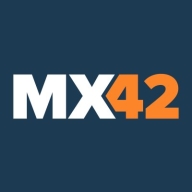


Matrix42 Unified Endpoint Management and Microsoft Enterprise Mobility + Security are two robust solutions for endpoint management. Users generally find Microsoft Enterprise Mobility + Security to offer superior features, making it worth the higher price, despite Matrix42 being praised for its pricing and support.
Features: Matrix42 is noted for its comprehensive device management capabilities, ease of integration, and strong security features. Microsoft Enterprise Mobility + Security stands out with advanced security protocols, integration with other Microsoft products, and extensive compliance features. Microsoft Enterprise Mobility + Security edges out Matrix42 regarding advanced security and seamless integration.
Room for Improvement: Matrix42 users highlight the need for a more user-friendly setup process and better customer support documentation. Microsoft Enterprise Mobility + Security users often point out the steep learning curve and the need for more intuitive management tools. Both products need enhancements, but Microsoft’s complexity appears to be a more significant hurdle.
Ease of Deployment and Customer Service: Matrix42 is reported to have a relatively straightforward deployment process but may need improved customer support. Microsoft Enterprise Mobility + Security has a more complex deployment process, often requiring substantial initial setup, but its customer service is considered more responsive and reliable. Microsoft’s customer service reputation gives it an advantage despite the deployment complexity.
Pricing and ROI: Matrix42 is appreciated for its competitive pricing and perceived good ROI by users. In contrast, Microsoft Enterprise Mobility + Security is deemed more expensive but justified by its feature set and overall value. Users feel that Microsoft's higher upfront cost is offset by its comprehensive capabilities.



Microsoft Intune provides centralized management of mobile devices and applications, ensuring security, compliance, and productivity through integration with Microsoft services like Microsoft 365 and Azure Active Directory.
Organizations use Intune for managing mobile devices and applications, enhancing security and compliance across platforms. With features like single sign-on, conditional access, and zero-touch deployment via Autopilot, it facilitates efficient operations. Intune's scalability, easy enrollment, and capabilities such as remote wipe support diverse device management, offering robust data protection and efficient operation. Despite its features, improvement areas include reporting, compatibility with non-Microsoft devices, and better support for macOS and Linux devices.
What are the key features of Microsoft Intune?
What benefits should users look for in reviews?
In industries such as finance, healthcare, and education, Microsoft Intune is implemented to ensure secure and compliant device management. Companies leverage its capabilities to deploy security policies and manage both corporate-owned and BYOD environments, facilitating a unified approach to data protection and compliance.
Silverback offers easy, scalable and secure device management for tablets and smartphones, including Android for Work, Windows 10 Mobile, iOS, and Mac OS.
Microsoft Enterprise Mobility + Security (EMS) is the only comprehensive solution designed to help manage and protect users, devices, apps, and data in a mobile-first, cloud-first world.
We monitor all Enterprise Mobility Management (EMM) reviews to prevent fraudulent reviews and keep review quality high. We do not post reviews by company employees or direct competitors. We validate each review for authenticity via cross-reference with LinkedIn, and personal follow-up with the reviewer when necessary.